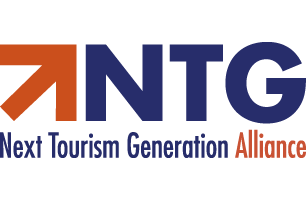Issues that need to be solved for a future-proof tourism and hospitality sector
On Friday February 21, a conference around ‘’Digitization in the Tourism Sector: Experiences and New Skills’’ took place atUnioncamerein Rome. Subject of the conference was “Digitialization in the Tourism Sector: Experiences and New Skills”. The conference was opened by罗伯特·迪Vincenzo, president ofISNART, emphasizing the importance of tourism for the Italian economy and the need for having the right skills in working in this sector. He underlined the current gaps that are existent in the skills of the tourism workers.
Subsequently, the vice-president ofFederturismo, mrs.MarinaLallisaid that competences in the digital field, to sell, to administer, or to give support, and the knowledge of these skills is very important – for people entering the labour market and for current workers in the industry. This is what the NTG Project supports.Corné DijkmansfromBreda Universityin The Netherlands showed the different forms of digital transformation in tourism, and where the largest skills gaps will emerge in the next coming 10 years.
Allesio Misuri fromFederturismoshared insights with regard to the digital maturity of companies in the Italian tourism industry. In general, the tourism industry shows a lower level of digital maturity then the overall average of industries in Italy. Next,Alessandro RinaldiofSi. Cameratalked about cultural events and the tourism attractions of Marche.Barbara MarcotullifromInnovacameraunderlined the importance of design thinking in bridging the skills gaps in tourism. By the phases consisting of the 4 D’s (discover, define, develop deliver) solution of market problems are easier to solve than with the traditional “analytical” approach. Since tourism products are services (more specifically: transformative services), we need a mindset of change enabling a new operating system for tourism. Business models should be more purpose-oriented.
In conclusion, the day provided an overview of the current state of affairs with regard to digital skills development in the tourism industry and contributed to a better understanding of current issues to be solved to make the sector more future-proof.
Follow the efforts of the Next Tourism Generation via ourwebsite,Facebook,Twitter| #NTGskillsalliance or viaLinkedIn



No Comments